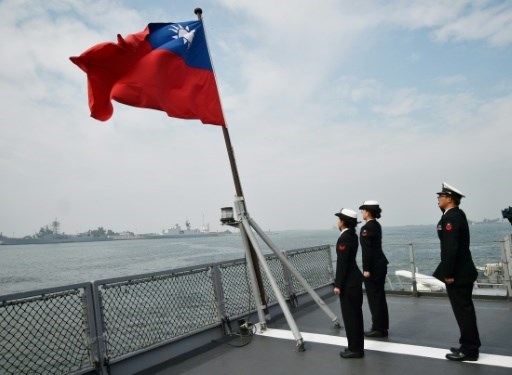Taipei - Taiwan replaced its China affairs chief Friday, promoting a minister associated with pro-independence politics in what it said was a bid to forge a "new phase" in relations with rival Beijing.
Analysts said the move, part of a major reshuffle, signalled a push by President Tsai Ing-wen to take a more assertive stance as ties with the Chinese government grow increasingly frosty.
China still sees Taiwan as part of its territory to be reunified and has cut off official communications with Taipei as Tsai refuses to acknowledge the self-ruling, democratic island is part of "one China".
Chen Ming-tong will take over the Mainland Affairs Council (MAC) which oversees Taiwan's relations with China.
He previously served as head of the MAC from 2007 to 2008 under Taiwan's former president Chen Shui-bian, who was a staunch independence advocate.
"Chen is familiar with cross-strait exchanges... he can also create a new phase and a new vision in cross-strait affairs by returning to the job," cabinet spokesman Hsu Kuo-yung told reporters.
Presidential secretary-general Joseph Wu, a confidant of Tsai with expertise in international and cross-strait relations, also became the new foreign minister.
The pair replace relatively conservative ministers, indicating Tsai's intention to take a more bullish approach to cross-strait relations, said Hung Chin-fu, a political analyst at National Cheng Kung University.
"She aims to find a strategic balance, a dynamic equilibrium between the two sides so Taiwan won't be in a passive situation where it keeps taking punches by China," he told AFP.
Tsai has pledged to maintain the "status quo" with Beijing but pro-independence politicians in her Democratic Progressive Party (DPP) have criticised her for not taking a tougher stance.
Ties with Beijing have become increasingly tense since Tsai took office in 2016. Beijing has stepped up the pressure on her government with increased military drills and by wooing away Taiwan's dwindling number of diplomatic allies.
When China last month began operating new flight routes in the Taiwan Strait without consulting the island, Taipei slammed the move as "reckless and politically motivated".
Taiwan retaliated by blocking requests by two Chinese airlines to operate 176 additional cross-strait flights during the peak Lunar New Year holiday period.
The reshuffle also aimed to boost support for Tsai's DPP ahead of her mid-term test with key local government elections by the end of 2018, analysts said.
National Security Council secretary-general Yen Teh-fa is also set to replace gaffe-prone defence minister Feng Shih-kuan, who was criticised and ridiculed for giving himself a perfect mark of "100 points" when grading his job performance and for describing himself as "more handsome" than a top movie star.



